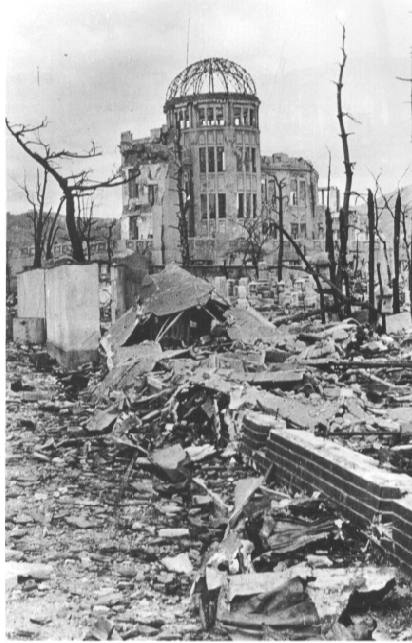LOC11:07
08:07 GMT
 Hiroshima marked on Monday the 62nd anniversary of the US atomic bombing in World War II that claimed the lives of more than 140,000 people instantly.
Hiroshima marked on Monday the 62nd anniversary of the US atomic bombing in World War II that claimed the lives of more than 140,000 people instantly.
TOKYO, Aug 6 (KUNA) -- The western Japanese city of Hiroshima marked on Monday the 62nd anniversary of the US atomic bombing in World War II that claimed the lives of more than 140,000 people instantly.
At a memorial service, some 40,000 people, including Prime Minister Shinzo Abe and diplomats from 42 countries, gathered at the Peace Memorial Park in Hiroshima and offered a minute of silent prayers at 8:15 a.m. (2315 GMT), the moment when the Enola Gay B-29 bomber dropped the atomic bomb in 1945.
A list of 253,008 people who have died since the bombing was placed in the cenotaph during the ceremony. The names of 5,221 more people recognized as atomic-bomb victims since August 6 last year were added to the list of casualties.
In a Peace Declaration read at the 45-minute memorial service, Hiroshima Mayor Tadatoshi Akiba urged the Japanese government to express clear opposition to US policy that continues with nuclear development, which he called "outdated and a mistake." "Japan, the only country to have suffered an atomic, should take the lead in opposing nuclear weapons," Akiba said. "The government should humbly learn the philosophy of the atomic-bomb survivors, along with facts of the bombing and spread this knowledge throughout the world, as the only nation to have suffered an atomic attack." In his speech, Abe vowed to maintain the Constitution's peace clause while promising to make efforts to enhance support for atomic bomb survivors.
"I want to renew my promise to continue to abide by provisions of the Constitution, honestly aspire for international peace, and firmly maintain the three non-nuclear principles -- not possessing, not producing, and not allowing nuclear arms into Japan." As of March 31, a total of 251,834 atomic bomb survivors were alive both in and outside of Japan, with their average age at 74.6, according to the Health, Labor and Welfare Ministry.
A second atomic bomb was dropped on Nagasaki on August 9, 1945, causing another 70,000 deaths.
Japan surrendered six days later, bringing an end to World War II.(end) mk.wsa KUNA 061107 Aug 07NNNN